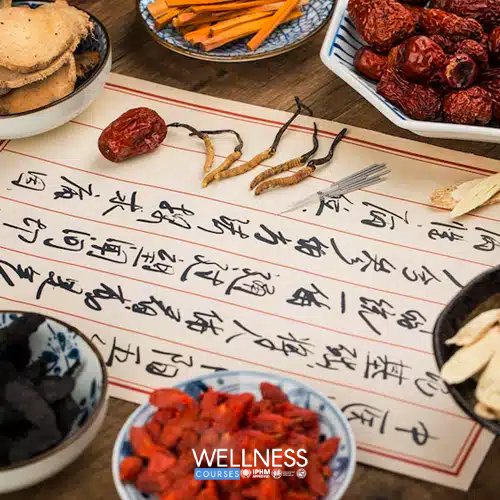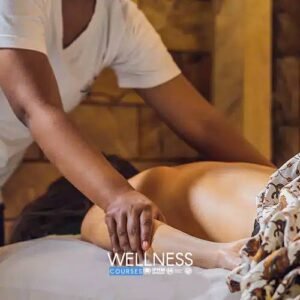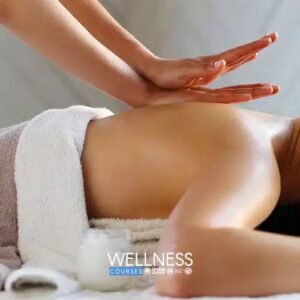Description
Secure Payment
Our website is secure and your data is encrypted.
Immediate Access
The training is available immediately.
Certificate of Completion
Certificate of training completion
Training Description
Traditional Chinese Medicine: An Ancient Practice
Traditional Chinese Medicine (TCM) is one of the oldest medical systems in the world, developed over 4,000 years ago. This holistic approach considers the human being as a whole, addressing the body, mind, and soul. It is a recognized alternative medicine known for its effectiveness in both prevention and the treatment of common ailments. Many health professionals and individuals today turn to this approach for its preventive philosophy, comprehensive view of the individual, and use of natural techniques. If you’re interested in Chinese medicine and want to deepen your understanding or practice, our TCM training can help you gain the knowledge and skills needed to care for yourself, your loved ones, or your clients.
What is Traditional Chinese Medicine (TCM)?
Traditional Chinese Medicine (TCM) is a holistic approach to health, based on ancient principles. It aims to restore balance between the body and mind by harmonizing vital energies. This training offers a complete introduction to the core concepts of TCM and its main techniques, adapted to modern needs.
Beyond theory, you will discover how TCM can be integrated into your daily life or professional practice to improve overall well-being. Whether to prevent imbalances, manage stress, or boost vitality, this course provides valuable and practical tools.
The fundamental principles of Chinese thought include Yin and Yang, the Five Elements (Wood, Fire, Earth, Metal, Water), and Qi.
These concepts are interconnected and form a coherent framework for understanding the world and the human body. Yin and Yang represent opposing and complementary forces, while the Five Elements describe the dynamic interactions of nature.
Chinese thought has deeply influenced Chinese culture—from poetry to painting, martial arts to cooking. This influence is also evident in Traditional Chinese Medicine, where philosophical concepts are applied to diagnose and treat illnesses.
Why Take This Traditional Chinese Medicine (TCM) Training?
Traditional Chinese Medicine is an ancient discipline that offers a comprehensive and natural approach to maintaining and restoring health. Here’s why this training is a valuable choice:
- A holistic approach to well-being
TCM views the body, mind, and emotions as a connected whole. This course will teach you how to understand and rebalance these aspects for greater harmony. - Natural prevention and relief
Through non-invasive methods, TCM offers effective solutions for preventing illness, relieving stress, improving sleep and digestion, and boosting vital energy. - An ideal complement for wellness professionals
Whether you are already a health or wellness practitioner, this training will enhance your expertise and allow you to expand your services with recognized techniques. - A tradition adapted to modern needs
TCM fits perfectly with today’s lifestyles. It meets the growing demand for gentle, body-respectful approaches. - Personal and professional enrichment
Learning TCM not only improves your personal well-being but also positions you as a key player in the field of natural and preventive health.
Investing in this course means choosing a time-tested method that has endured for centuries, while addressing today’s health and wellness challenges.
By the End of This Training, You Will Be Able To:
- Master the fundamental concepts of Traditional Chinese Medicine, including Yin-Yang, Qi, the Five Elements, and their application in well-being.
- Identify and analyze energetic imbalances using specific diagnostic techniques (observation, pulse and tongue analysis).
- Apply major therapeutic techniques such as acupuncture, moxibustion, Tui Na massage, and Chinese herbal medicine.
- Practice Qi Gong and meditation exercises to enhance physical and mental balance.
- Recommend personalized solutions for prevention and for managing common issues like stress, digestive disorders, or fatigue.
- Integrate TCM tools into a professional health or wellness practice to diversify your services.
- Offer a global and natural vision of health, focused on harmonizing body and mind.
- Contribute to the well-being of others through a respectful approach rooted in time-honored traditions.
The Advice of
Wellness Courses
Our advice is to immerse yourself in the study of Traditional Chinese Medicine (TCM) using a holistic approach. Chinese medicine is a traditional form of healing that considers the entire human being within their physical, emotional, and spiritual environment. To become a competent TCM practitioner, it is essential to understand key concepts such as Yin and Yang, the Five Elements, meridian circulation, and the balance of vital energies within the body. It is also important to master the various techniques of Chinese medicine such as acupuncture, moxibustion, Chinese herbal medicine, and energy practices like Qi Gong. Finally, adopting a holistic approach is crucial to helping your clients—by considering their lifestyle, eating habits, emotions, and environment. This will allow you to tailor treatments to each individual’s needs and enhance the effectiveness of your care.
Training Program
Module 1 – Fundamentals of TCM
- Chapter 1 – Chinese thought and its implications in traditional medicine
- Chapter 2 – Connections between Chinese philosophy and medical practice
- Chapter 3 – Introduction to the history of Chinese medicine
- Chapter 4 – Comparison between Chinese and Western medicine
- Chapter 5 – Concepts of Wu Ji, Tai Ji, Qi, Yin-Yang and their medical applications
- Chapter 6 – The Three Treasures (Jing, Qi, Shen) and their role in health
Module 2 – Five Elements Theory and Organs
- Chapter 1 – Theory of the Five Elements and their medical implications
- Chapter 2 – Exploration of organs and viscera through the Five Elements
- Chapter 3 – Introduction to the Six Energies and Twelve Earthly Branches
Module 3 – Chinese View of the Human Body and Yin-Yang
- Chapter 1 – Chinese perspective on the human body
- Chapter 2 – Exploration of congenital Qi, acquired Qi, and Ming Men
Module 4 – Organ Pairs and the Five Elements Cycle
- Chapter 1 – Study of three organ pairs: Heart-Kidney, Lung-Spleen, Liver-Pericardium
- Chapter 2 – Generation and control cycle of the Five Elements
- Chapter 3 – Meridians and their role in diagnosis and treatment
Module 5 – Human-Cosmos Interconnection and Meridians
- Chapter 1 – Interconnection between humans and cosmic energies
- Chapter 2 – Exploration of main and “extraordinary” meridians
- Chapter 3 – Circadian cycle and origins of disease in TCM
Module 6 – Understanding Disease in TCM
- Chapter 1 – Internal imbalances and understanding of illness
- Chapter 2 – Study of syndromes and symptoms, classification of diseases
- Chapter 3 – The 12 primary meridians
Module 7 – TCM Diagnostic Methods
- Chapter 1 – Diagnostic techniques: visual inspection, auscultation, inquiry, palpation
- Chapter 2 – Tongue and pulse diagnosis
- Chapter 3 – Exploration of meridians: Triple Burner, Pericardium, Spleen-Pancreas, Stomach
Module 8 – TCM Therapies: Acupuncture and Moxibustion
- Chapter 1 – Fundamentals of acupuncture
- Chapter 2 – Needle insertion techniques and point selection
- Chapter 3 – Practice of moxibustion
Module 9: Reflexology in Traditional Chinese Medicine
- Chapter 1: TCM Reflexology: foundations and energy balance
- Chapter 2: The 4 reflex zones
- Chapter 3: Stimulation techniques: pressure, friction, and traditional tools
- Chapter 4: Therapeutic applications: digestive, respiratory, hormonal issues, and stress
Module 10: TCM Therapies – Qi Gong and Tai Chi
- Chapter 1: Principles of Qi Gong and Tai Chi
- Chapter 2: Tai Chi sequences and forms
- Chapter 3: Qi Gong and Tai Chi for health
Module 11: TCM Therapies – Herbal Medicine
- Chapter 1: Fundamental herbs and remedy formulation
- Chapter 2: Administration and dosage
- Chapter 3: Modern adaptations of traditional formulas
- Chapter 4: Case studies in Chinese pharmacopoeia
Module 12: TCM Therapies – Dietetics
- Chapter 1: Foundations and principles of Chinese dietetics
- Chapter 2: Therapeutic dietetics: foods and their properties
- Chapter 3: Meal planning and practical cases
Module 13: Tui Na Massage
- Chapter 1: Principles and techniques
- Chapter 2: Therapeutic applications and clinical practice
- Chapter 3: Integrating Tui Na with other therapies
Module 14: Meditative and Spiritual Practices
- Chapter 1: Meditation and spirituality in TCM
- Chapter 2: Meditation techniques and spiritual development
- Chapter 3: Integrating spirituality into practice
Module 15: Bonus Video
- Plantar reflexology protocol
Key Highlights of the Training
- Immediate access to your training
- Unlimited and lifetime access
- Complete and accessible online training
- Modules in PDF and audio formats
- Certificate of course completion
- Assessment for each module
- Study at your own pace from your computer, tablet, or smartphone
How does it work?
Once your registration is complete, you will receive a link allowing you to access your training immediately.
Customer Service: If you have any questions after placing your order, please contact us by email at: contact@wellness-courses.com
Other Recommended Trainings
- Sale!
- Sale!
- Sale!
- Sale!
- Sale!
- Sale!
- Sale!
- Sale!
- Sale!
- Sale!
- Sale!
- Sale!
For Whom and Why?
Training accessible to all, immediately and with unlimited access
This training is for everyone. While it is ideal for your personal life, it can also be adapted to your professional life, allowing you to offer a new type of service in your field.




















There are no reviews yet.